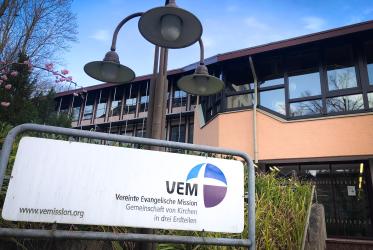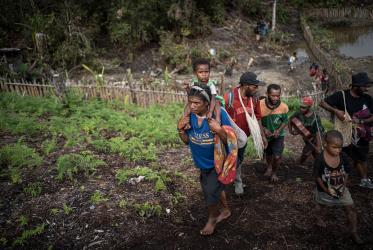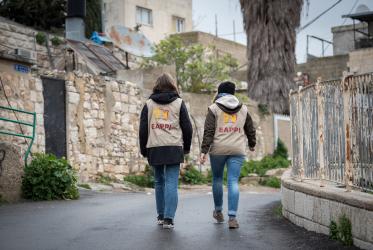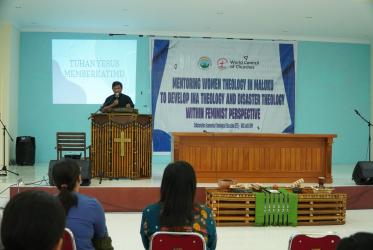As my year as an intern in the Interreligious Dialogue and Cooperation team in the WCC draws to a close, it is time to ponder the changing face of the interfaith movement during the turbulent year of 2015. It is clear that in Europe at least the climate concerning different faiths and Islam in particular took a turn for the worse.
Rising tensions
The two terrorist acts in Paris in 2015, as well as bombings in Beirut and Ankara, the rising threat of the so-called Islamic State (IS), and many more incidents around the world make the reality we live in today seem as insecure as ever (at least from the European viewpoint). Fear is not the way for a Pilgrimage of Justice and Peace.
The rising tensions between different religious traditions have already become too serious to shrug off as mere unfortunate events. In addition, the insecurity felt by the citizens of the European Union is fuelled by the refugee crisis we are facing today. As innocent people fleeing for their lives become the scapegoats for the global terrorist threat, I see the Christian values of love and compassion once so cherished in Europe crumble away at an alarming rate.
The situation is especially worrying in my home country of Finland. The older Finnish generation has been portrayed as xenophobic for a long time already, and my friends back home tell me the situation has become much worse during the past year. There have been attacks on Muslim women, attempts to burn refugee centres across the country, and rampant hate talk about refugees and Islam in the internet.
Most worryingly, just in the past months vigilante groups have begun to appear everywhere in Finland, claiming to ‘protect citizens’ from attacks by refugees. These street patrols carry names such as ‘Soldiers of Odin’ and ‘Finnish Resistance Movement’, which tells a lot about the true nature of such groups.
Slowly making the way forward
During my internship in the WCC I have met various Christian, Muslim, and Jewish leaders as well as young people from all faiths and backgrounds. Only in rare cases have I seen any tension among the people I have met. It is, of course, not a surprise that intellectuals from different faith traditions find no problem to cooperate harmoniously in the interfaith environment.
But how to spread the message of harmonious co-existence to the broader base of believers and especially those alienated youths, who are in danger of succumbing to extremism? The situation is too complex for anyone to answer precisely, but in my opinion it is best to proceed through honest encounters both with the leaders of different faith communities as well as with laymen and laywomen. This is precisely what I hope to be doing in the future when I return to Finland.
Only by setting our prejudices aside and facing the other as a fellow human being, can we hope to find that ideal towards which every religion strives. And only after we see each other as friends and companions in the complex reality we live in, can the Pilgrimage of Justice and Peace truly begin. I hope that the World Interfaith Harmony Week, from the 2nd to the 8th of February 2016 can help pave the way towards a more peaceful future.






